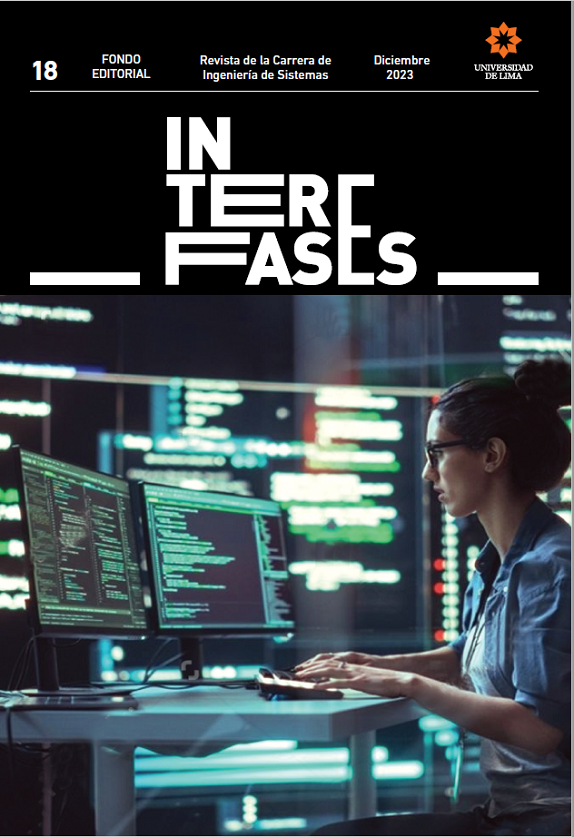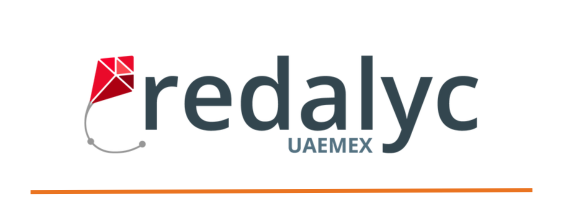Investigation on Gender and Leadership in STEM in Higher Education: Methodology Design
DOI:
https://doi.org/10.26439/interfases2023.n018.6611Keywords:
discursive productions, Brazil, gender, career experiences, leadership, STEMAbstract
Institutional actions and policies implemented by universities hold the potential to significantly impact the inclusion of women in leadership roles within STEM fields. This article describes the methodological design approved by the local ethics committee to conduct the research in Brazil, with the primary objective of understanding the degree to which discursive productions on gender affect women’s career experiences and leadership paths within STEM fields in higher education. Discursive productions include structures of power such as university policies, climate, culture, and projects. It is expected that the work will provide valuable insights and support for researchers sharing similar goals and who work to reduce gender inequalities in STEM.
Downloads
References
Creswell, J. W., & Creswell, J. D. (2017). Research design: Qualitative, quantitative, and mixed methods approaches. Sage publications.
Diehl, A. B., Stephenson, A. L., Dzubinski, L. M., & Wang, D. C. (2020). Measuring the invisible: Development and multi-industry validation of the Gender Bias Scale for Women Leaders. Human Resource Development Quarterly, 31(3), 249-280.
Eagly, A. H., & Karau, S. J. (2002). Role congruity theory of prejudice toward female leaders. Psychological Review, 109(3), 573-598. https://doi.org/10.1037/0033-295x.109.3.573
Gil, A. C. (2008) Métodos e Técnicas de Pesquisa Social. Atlas.
Gil, A. C. (2022) Como elaborar projetos de pesquisa (7.ª ed.) Atlas.
Glass, C., & Cook, A. (2016). Leading at the top: Understanding women’s challenges above the glass ceiling. The Leadership Quarterly, 27(1), 51-63. https://doi.org/10.1016/j.leaqua.2015.09.003
Guzman, I., Sanchez, A., & Gonzales Lopez, R. (2023). Motivation to lead of IT professionals: The role of IT occupational culture, commitment and gender equality policies in Latin America. AMCIS 2023 Proceedings.
IDRC. (2022, January 5th). Gender in STEM Research Initiative: Announcement of projects. https://www.idrc.ca/en/news/gender-stem-research-initiative-announcement-projects
Jaccheri, L., Pereira, C., & Fast, S. (2020). Gender issues in computer science: Lessons learnt and reflections for the future. In 2020 22nd International Symposium on Symbolic and Numeric Algorithms for Scientific Computing (SYNASC).
Jetter, A. J., Loanzon, E., Jahromi, S., Nour, A. H., & Pakdeekasem, P. (2013). An exploratory study on the leadership style preferences of male and female managers: Implications on team performance. In 2013 Proceedings of PICMET’13: Technology Management in the IT-Driven Services (PICMET) (pp. 1161-1181). IEEE.
Krizsan, A., & Lombardo, E. (2013). The quality of gender equality policies: A discursive approach. European Journal of Women’s Studies, 20(1), 77–92. https://doi.org/10.1177/1350506812456462
Laclau, E., & Mouffe, C. (1985). Hegemony and socialist strategy: Towards a radical democratic politics. Verso Books.
Lombardo, E., & Meier, P. (2022). Challenging boundaries to expand frontiers in gender and policy studies. Policy & Politics, 50(1), 99-115. https://doi.org/10.1332/030557321X16309516650101
Louro, G. L. (1997). Gênero, sexualidade e educação. Vozes.
Maciel, C., Guzman, I.R., Berardi, R., Branisa, B., Rodriguez, N., Frigo, L., Salgado, L., Jimenez, E., Bim, S.A., & Cabero, P. (2023). Open Data Platform to Promote Gender Equality Policies in STEM. Proceedings of the Western Decision Sciences Institute (WDSI). April 2023. Portland, Oregon, USA.
McCullough, L. (2019). Proportions of women in STEM leadership in the academy in the USA. Education Sciences, 10(1), 1. https://doi.org/10.3390/educsci10010001
Miranda, C. M. (2009). Os movimentos feministas e a construção de espaços institucionais para a garantia dos direitos das mulheres no Brasil. NIEM/UFRGS, 24(9).
Olinto, G. (2011). A inclusão das mulheres nas carreiras de ciência e tecnologia no Brasil. Inclusão Social, 5(1).
Paez, A. (2017). Gray literature: An important resource in systematic reviews. Journal of Evidence-Based Medicine, 10(3), 233-240. https://doi.org/10.1111/jebm.12266
Pereira Cardoso, R., Porto Castro, A., Saraiva Frio, G., & Fochezatto, A. (2022). Migração estudantil: uma análise do impacto da política de cotas e do programa (Coords.). universidade para todos. In F. C. de Macedo, A. Monteiro Neto & D. J. Vieira (Eds.), Universidade e território: ensino superior e desenvolvimento regional no Brasil do século xxi, (pp. 429-459). IPEA. https://doi.org/10.38116/978-65-5635-030-1/capitulo13
Souza, F. N., Costa, A. P., & Moreira, A. (2010). WebQDA: Software de apoio à análise qualitativa. In Atas da 5a Conferência Ibérica de Sistemas e Tecnologías de Informação (CISTI2010) (pp. 293-8). Associação Ibérica de Sistemas e Tecnologias de Informação.
Spink, M. J., Menegon, V. M., & Medrado, B. (2014). Oficinas como estratégia de pesquisa: articulações teórico-metodológicas e aplicações ético-políticas. Psicologia & Sociedade, 26, 32-43.
Su, X., Johnson, J., & Bozeman, B. (2015). Gender diversity strategy in academic departments: exploring organizational determinants. Higher Education, 69(5), 839-858. http://www.jstor.org/stable/43648828
Tavares, A., & Perente, T. G. (2015). Gênero e Carreira Científica: Um Estudo a Partir dos Dados das Universidades Federais da Região Norte do Brasil. Revista Ártemis, 20(2), 66-75.
Van Veelen, R., Derks, B., & Endedijk, M. D. (2019). Double Trouble: How being outnumbered and negatively stereotyped threatens career outcomes of women in STEM. Frontiers in psychology, 10. https://doi.org/10.3389/fpsyg.2019.00150
Veiga dos Santos, A., Marins Braga, I. C., & Mascarenhas Guimarães-Iosif, R. (2016). A governança no contexto da pesquisa em educação no Brasil. Linhas Críticas, 22(49), 642-666.
Published
Issue
Section
License
Authors who publish with this journal agree to the following terms:
Authors retain copyright and grant the journal right of first publication with the work simultaneously licensed under an Attribution 4.0 International (CC BY 4.0) License. that allows others to share the work with an acknowledgement of the work's authorship and initial publication in this journal.
Authors are able to enter into separate, additional contractual arrangements for the non-exclusive distribution of the journal's published version of the work (e.g., post it to an institutional repository or publish it in a book), with an acknowledgement of its initial publication in this journal.
Authors are permitted and encouraged to post their work online (e.g., in institutional repositories or on their website) prior to and during the submission process, as it can lead to productive exchanges, as well as earlier and greater citation of published work (See The Effect of Open Access).
Last updated 03/05/21






